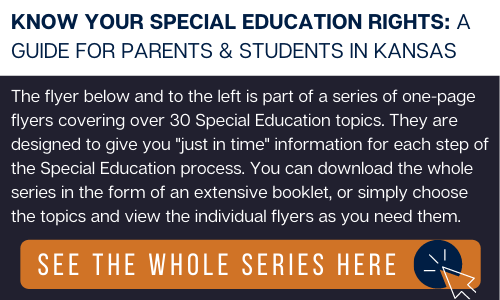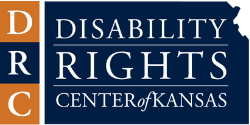What is Tiny-k?
 |
 |
PDF Version: Full Guide of all 30+ Flyers (Compiled as a Booklet)
Versión en Español en Formato PDF: ¿Qué es Tiny-k?
Tiny-k is a program in Kansas for children with disabilities that are younger than 3. It provides services to children with exceptional needs and their families in a comfortable, known location, such as home or a childcare center. A family that may need Tiny-k services will get a family service coordinator. That coordinator will help make sure that the family and child meet the requirements of the program. This process will include an evaluation of the child.
Tiny-k services are based on the needs of the family. They could include:
• Speech therapy
• Occupational therapy
• Physical therapy
• Vision services
• Hearing services
• Family training
• Assistive technology
• Social work
• Psychological services
• Nutrition services
• Transportation services
• Other types of medical services
After it has been decided that your family and child are eligible, you and the family service coordinator will write an IFSP. This stands for Individualized Family Service Plan. The IFSP will include goals and outcomes that your child will work towards.
Tiny-k services end when your child turns 3. However, before their third birthday, your Tiny-k team will help you plan for your child’s next steps, whether they will receive special education services at school or participate in another program. Find your local Tiny-k program’s information here.
Sources & Additional Resources:
Kansas Special Education Process Handbook, Chapter 3. Kansas State Department of Education.
Kansas Infant-Toddler Services Procedure Manual. Kansas Department of Health and Environment.
Disclaimer: This fact sheet is not intended to provide specific legal advice. If you need legal advice, please contact an attorney. Only an attorney can give you specific legal advice based on your particular situation. We try to update our materials regularly, but the law can change frequently. This publication is based on the law at the time that it was written. Future changes in the law could make information in this fact sheet inaccurate.
.png)





